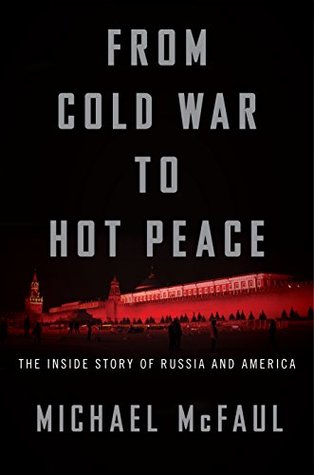More on this book
Community
Kindle Notes & Highlights
Read between
May 11 - May 24, 2018
When Putin ranted about the stupidity of invading Iraq, Obama responded calmly that he agreed, reminding Putin that he too opposed that war well before it began. That seemed to surprise the prime minister: all Americans did not think alike.
Amazingly, Obama and Putin would not meet again until Putin became president in 2012. They would never have a formal summit together, in Moscow or Washington.
President Carter, as champions of this analogy hinted, had been weak, too focused on human rights, and not worried enough about American security interests. To avoid Carter’s fate, therefore, Obama had to stand behind Mubarak. It was a compelling analogy.
Cooperation with Stalin during World War II was a part of our history, of course, but I didn’t have to look at Stalin—or compel my guests to—every time we had tea in the library.
whether Putin truly believed these tall tales of American subversive activities in Russia, or whether he just deployed these arguments to mobilize domestic support. Initially, I leaned toward the latter hypothesis. Kremlin spin doctors were a cynical bunch, but they weren’t stupid. Surely they knew precisely what we did and did not do inside Russia. Their intelligence organizations, after all, are some of the best in the world. By the end of my tenure as ambassador, however, my position changed: I came to believe that Putin and some of his closest advisors genuinely believed that we were
...more
A senior U.S. government official was standing next to me as Medvedev stopped to chat. After the Russian prime minister went on his way, my colleague asked me, “Who was that?”
You don’t need a PhD in Russian studies to understand why Putin would prefer Trump to Clinton.


